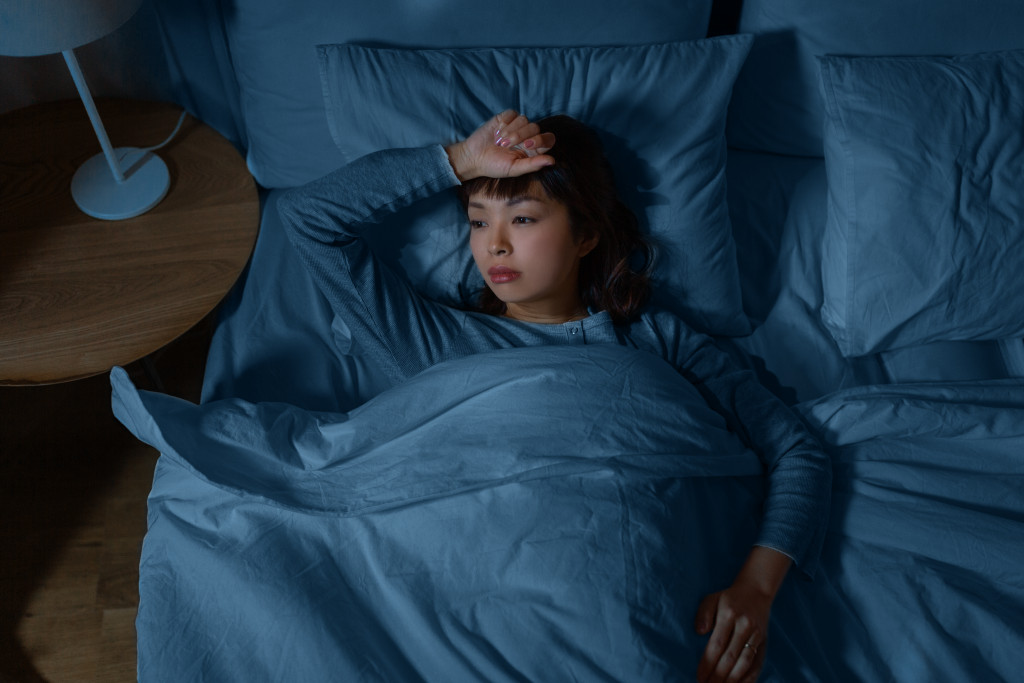- Creating a sleeping routine and setting an environment for rest is essential for uninterrupted sleep.
- Stimulants such as caffeine and nicotine should be avoided before bedtime to ensure quality sleep.
- Using dental appliances can help reduce chronic snoring and other issues related to airway blockage.
- Avoiding electronic devices an hour before bed will decrease the amount of blue light emitted, which can disrupt sleep patterns.
Getting a good night’s sleep is essential for a healthy lifestyle. Studies conducted by the National Institutes of Health suggest that adults require between seven to nine hours of sleep each night, with children and teens requiring more. Unfortunately, many people are not getting the recommended amount of sleep they need.
Lack of quality sleep can have severe implications for physical and mental health. According to the Centers for Disease Control and Prevention (CDC), extended periods of insufficient sleep can increase the risk of developing chronic health conditions such as obesity, heart disease, diabetes, and depression. Research published in the Journal of American Medical Association also suggests that those who lack quality sleep are more likely to be involved in motor vehicle accidents or workplace injuries than those who get enough rest.
Moreover, research conducted by the National Sleep Foundation has found that quality sleep is essential for cognitive functioning. Those who lack adequate restful sleep often suffer from fatigue and have difficulty concentrating, making decisions, and remembering information. Poor sleep also impairs creativity and increases moodiness and irritability during waking hours.
As a result, you might want to do everything it takes to ensure you get a good night’s sleep every day. Here are a few measures you can try:
Create a Sleeping Routine

Creating an effective sleeping routine is essential to ensure no disruptions to your sleep. The National Sleep Foundation recommends establishing a regular bedtime and wake-up time, even on the weekends. This helps to regulate your body’s internal clock—or circadian rhythm—which plays a crucial role in initiating and maintaining sleep. Sticking to the same sleep schedule can help you fall asleep faster.
Here are a few steps you can take to create an effective sleeping routine:
Take Time To Wind Down Before Bed
Take some time in the hours leading up to bedtime to relax and unwind. This could include reading or listening to soothing music, taking a hot bath, meditating, or engaging in light stretching or yoga. Avoid activities that may overstimulate your brain, such as playing video games or watching TV shows with intense content.
Set Your Environment for Sleep
Your bedroom should be comfortably calm, dark, and quiet for optimal sleep. Invest in blackout curtains or shades that prevent outside light from seeping through the windows if necessary. If you live in an area with a lot of noise pollution, consider using earplugs or adding white noise machines.
Avoid Naps During The Day
Although taking naps during the day when feeling tired may be tempting, these daytime rest periods can interfere with nighttime sleep patterns. If you need a nap during the day, limit it to around 20 minutes at most, and avoid napping late in the afternoon or evening hours, as it will make it harder to drift off at night.
Limit Caffeine Intake
Stimulants such as caffeine and nicotine can interfere with sleep, so limit your consumption of these substances. Avoid coffee or other caffeinated beverages in the late afternoon/evening hours and earlier in the day if you are sensitive to their effects.
Use Dental Appliances

Chronic snoring is a common condition that can lead to various health complications. In addition to disrupting one’s sleep cycle, chronic snoring can harm overall physical and mental well-being. As such, it’s essential to take measures to reduce the effects of snoring to ensure quality sleep.
One effective solution for chronic snoring is using high-quality EMA dental appliance straps. These tiny devices fit inside the mouth while sleeping and work by pushing the tongue forward and keeping the airway open while sleeping. This helps prevent soft tissue from blocking the airway and causing snoring. Clinical studies have found that dental appliances effectively treat mild-to-moderate obstructive sleep apnea (OSA) cases.
In addition, dental appliances can also provide relief from severe snoring caused by misaligned teeth or jaw structures. By wearing an instrument, your teeth are prevented from coming into contact with each other during sleep, thus preventing any vibrations that cause snoring. Dental devices may also help treat temporomandibular joint (TMJ) dysfunction, a common cause of jaw pain, headaches, and snoring.
Stop Using Your Phone
The phone is one of the most vital devices people must use daily. However, staring at your phone’s screen before going to bed can disrupt your sleep. This is because the blue light emitted from phones and other electronic devices suppresses melatonin—the hormone responsible for regulating your body’s sleep-wake cycle.
Thus, it is essential to avoid using any electronic devices an hour before going to bed. If you must use your phone, consider switching on the Night Shift mode or downloading a blue light filter app, which will reduce the amount of blue light being released from the device.
Final Thoughts
Getting a good night’s sleep is essential for overall physical and mental health. Taking the proper measures can help ensure quality sleep. Creating an effective sleeping routine, setting your environment for rest, avoiding naps during the day, limiting caffeine intake, using dental appliances, and not using your phone before bed are all measures that can improve one’s sleep hygiene and allow one to get enough restful sleep every night.




